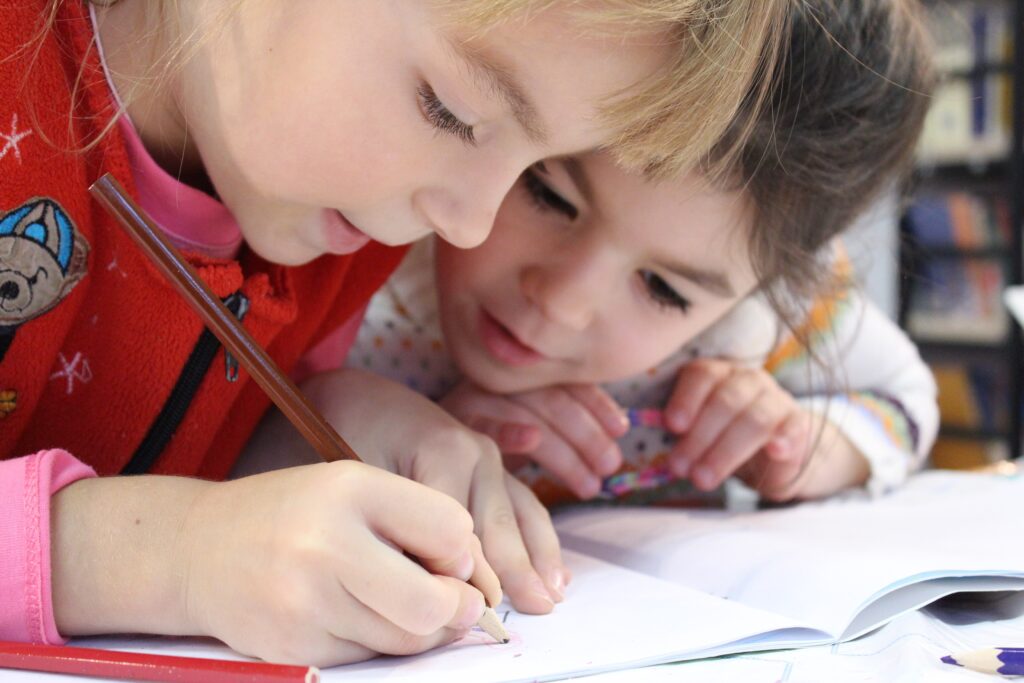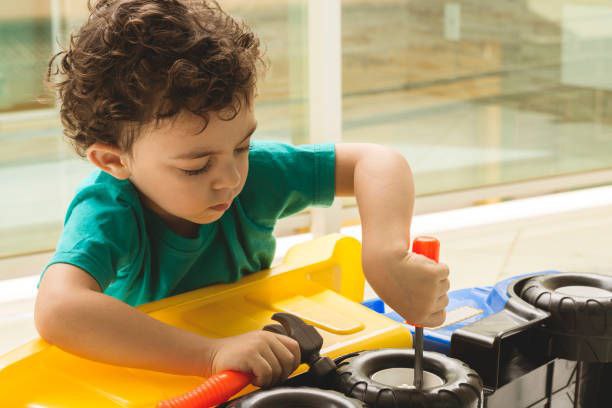The word “gifted” has been thrown around in public schools for decades and is often misused, misdiagnosed, and misunderstood. Gifted children may manifest in various ways, some of which are desirable. When figuring out if a child is gifted, you must look at several characteristics since not all gifted kids have the same traits.
Trying to decide if your child is “gifted” may be challenging, especially if they are your first child and you have nothing to compare them to. Other individuals, sometimes outside the family, may bring your child’s gift to your attention. You may believe that your child is merely a brilliant youngster.
Remember that each kid is unique and may be more assertive in certain areas than others. The list below is helpful since it may be used as a potential sign of skill. In other words,
However, there are usually some telltale indications. The Center for Talented Youth in Ireland says that talented children have certain traits that set them apart from their classmates. If you believe your child is gifted, look at these broad characteristics and traits.

What Are The Characteristics Of A Gifted Child?
The question of what are the characteristics of a gifted child can not be undermined because there are lots of characteristics that varies among children. Below are some of these characteristics.
1. High level of intensity
Gifted youngsters are more emotional than the average individual. They are often very passionate about something that interests them, and they can keep that passion going for a long time.
Their conduct might seem obsessive at times. “We had a student who became interested in horses,” said Lorene Porter, director of the lower school at The Roeper School in Bloomfield Hills. ” The child read all he could get his hands on about horses.” He drew and wrote about horses. This child will teach you all you need to know about horses. He even neighed like a horse.”
2. Enjoys learning.
Rapid learning is another characteristic of a gifted child. The word “insatiable” is often used to describe how much a gifted child wants to learn. They have an intense curiosity and need for knowledge. They love books and often ask their parents more questions than they can answer. “Sometimes it comes out as why, why, why,” said Porter. “So messiness may be a part of their environment, and, like any kid, you must keep a close eye on them for their protection.”
Morse emphasized that, whereas the early bright kid almost always has a solid desire to study, the older youngster may not. “They go underground if they haven’t been cultivated or if being a brilliant student doesn’t receive positive reinforcement,” Morse added.
3. Depth of perception
Gifted children uniquely perceive the world. They have a distinctive viewpoint on life and events. These youngsters notice what’s happening around them sooner than the average child. And they can look beyond the present instant, see patterns in the abstract, and solve problems.
A brilliant child can tell when people are being honest, so they often develop a strong sense of humor early on. A gifted child often has a sense of fairness and a desire for justice. The characteristics of the gifted children come from caring about other people.
“This feeling of justice starts to manifest itself when, say, you’re in the vehicle listening to NPR, and there’s a story about poverty, and the kid understands what they’re saying about the poor and the lack of food and is troubled by it.” It doesn’t simply fall off their shoulders. “The situation is very unjust to them,” Porter remarked.

4. Keen sense of observation
A gifted child may retain large volumes of knowledge for extended periods through a keen sense of observation. They are very good at noticing things like body language, the way people speak, and other small details that most people miss. They could remember it, write it down, and turn it into a language available.
5. Sophisticated language and thought process
A gifted child may or may not talk early, but they may have high-level and philosophical dialogues when they do. So, he tends to hang out with older kids and adults in search of someone more intelligent than them. He often falls out with their peers.
6. Ability to recognize more options
A gifted child can imagine more ways to act, even the ones they haven’t seen yet, than the average child. And they’re prepared to put those alternatives to use. It might be choosing one activity over another, asking for something, or disagreeing with you. That’s why they sometimes have trouble on assessments because they perceive more possibilities than the ordinary child,
7. Dislikes repeating or practicing something they already know
Gifted youngsters like to learn through discovery and dislike reviewing what they already know. This is one of the undisputable characteristics of a gifted child. These kids don’t mind rote learning; they don’t enjoy it after they’ve already achieved something. For example, at the age of three, kids like learning the numbers and letters of the alphabet.
However, at the age of five, when these items are taught in kindergarten, the child is no longer interested since he already knows them. If you teach a talented youngster the times table when it is a problem for him in third grade, he will gladly complete it.
If you wait until he’s in fifth grade and realizes he can look it up in a table or figure it out by addition, he won’t want to put in the effort. It has more to do with the difficulty of the task and their capacity to evaluate.

8. Perfectionist
A gifted child may comprehend what is ideal in a setting. This characteristic can lead to frustration if he thinks he cannot meet that level of perfectionism. He may be unwilling to tackle some jobs because he desires to do things properly. Instead of doing a less-quality job, they choose not to do the work at all.
9. Perseverance
When it comes to following their interests, bright young people are tenacious. They desire to figure things out and study all they can about their field of interest. If they’re making a Lego structure, they could construct it, take it apart, build it, then take it again and again,
10. Higher level of sensitivity
Gifted children are more emotionally sensitive than typical youngsters, initially toward themselves and then toward others. They may be very empathetic and morally sensitive. They have a lot of empathy because they can watch and understand body language, voice tones, and everything else that goes into communication.
11. Rapid Comprehension
With a superior capacity to acquire and assimilate information quickly and a desire for ongoing mental stimulation, profoundly gifted students typically operate at a different pace than their neurotypical classmates, moving far ahead or halting to delve deeply into areas of interest.

12. Intuitive Understanding of the Basics
They often resist focusing on non-intellectually complex activities such as repetitive materials or rote chores. Genuinely bright students may require less repetition to grasp an idea or concept. They get bored quickly with a task that is not challenging.
13. Tendency toward Complexity
They want to see the “big picture” of their learning. They may ask many “why” questions and prefer to study from the whole to the parts instead of the other way around. Generally, gifted children want to see more complex tasks.
14. Need for Precision
They appreciate subtlety and want to be accurate in what they think and say. They may answer questions with “it depends” and have trouble with multiple-choice tests that force them to make final decisions without considering the significance of context.
15. High Expectations
A gifted child with high expectations for himself and others may be a perfectionist or have a strong sense of what is fair. This can make it hard to understand rules set by others or interact with people of the same age with different standards.
16. Divergent Interests
Suppose you have a big imagination and a lot of divergent interests. In that case, you may need help connecting with people your age. People with a lot of talent may seek out older children or adults who share their interests or connect with younger children who are open to new ideas and have creative hobbies.
17. Verbal Ability
Gifted children often start talking early and use words way above their age level. Because of their strong verbal ability, these youngsters are often referred to as “precocious.” Amend Psychological Services’ website lists some of the linguistic characteristics of talented children as “avid storytellers,” “early talkers,” or those with a large and exact vocabulary.
These youngsters frequently select their words carefully, but they use many of them. They may also become frustrated with children their age who do not understand them and frequently seek interaction from older children or adults.
18. Information Processing
Education.com says brilliant students usually have a fantastic ability to learn and process information. They can learn things faster and better than their peers. Most of the time, these kids learn reading and math faster than their peers. This makes it hard to keep them challenged in a typical school setting. Bright Hub Education says some brilliant students act out in class because they are bored with the material being taught.

19. High Curiosity Level
Gifted kids often have a high level of curiosity about things they are passionate about, which you don’t see in other kids their age. According to Amend Psychological Services, it is not uncommon for them to remember the names of all the dinosaurs.
Beth Israel Deaconess Medical Center refers to this as “deep absorption” in activities that interest them. When parents repeatedly take their children to the library or help them browse the Internet, they quickly fill their curiosity.
20. Memory Retention and extraordinary memory
A gifted child often has an excellent retentive memory. He recalls knowledge quicker and for extended periods than ordinary children of the same age. Their high learning capacity enables them to assimilate data rapidly and retain them for subsequent recollection.
When a child has a good memory and can process information quickly, they usually learn things rapidly. This makes it hard for parents and teachers to teach these children as soon as they would like to.
21. Persistence
Many intelligent children put a lot of effort into their studies. They have high intensity and persistence to learn so quickly. Education.com says they may have a lot of social passion and sensitivity to the needs and feelings of others.
The gifted child has a far higher degree of sympathy for others than other children their age. His passion and determination might work against him when he faces a problem he can’t solve quickly.
22. Sense of Humor
Gifted children often have a sense of humor much above their years. According to Bright Hub Education, children generally have a specific understanding of more nuanced kinds of comedy.
They also like word games like puns and are very good at using them to make people laugh. These kids may be a delight to talk to, whether via conversation or writing.
23. Sense of Justice
A gifted child often grows up with a sense of fairness as one of their characteristics. This characteristic helps him develop high standards for himself and others. Their solid moral compass may help them be successful leaders and make sound decisions in many circumstances. It can also make it difficult for them to form long-term connections with others.
At the tender, these kids become interested in fairness and justice. They keep that interest for the rest of their lives.

24. Strong Imagination
Gifted kids often have a lot of creativity and solid imaginations and can tell stories that their parents and teachers don’t always expect. Education.com says that these kids often show unique characteristics in speaking, writing, or making art. They are also very creative. “A gifted child may spend time imagining and sometimes be labeled independent thinker.”
25. Keen Observation
Children in this group may be able to pick up on details far more intensely than other children their age. When reading a book or watching a movie, exceptional children often notice seemingly little details that others would overlook.
This characteristic often leads a gifted child to extended arguments, which may sometimes be frustrating for parents and teachers.
26. Problem-Solving Capabilities
Gifted children are often seen as great problem solvers. They like nothing more than breaking down complicated situations and creating unique solutions. According to Education.com, these youngsters have advanced cognitive and emotional aptitudes for comprehending societal issues.
Labeling a kid as “gifted” is a rather complicated procedure that, in most situations, requires careful observation and rigorous assessment.
Conclusion
The characteristics are not one size fit for every gifted child. Although there are certain similarities in the notion of giftedness, there are many variations in the characteristics. Some children are talented in several areas, while others are exceptional in one.
Furthermore, giftedness is dynamic rather than static. It should be discovered early so these skills and talents can be nurtured and developed.
If you suspect your child is talented, seek proper counseling. Consult their physician, teachers, and administrators. If you find out about your child’s skills early on, you may be able to create an educational plan that will help them reach their full potential.
Read more of our articles here: https://abundanceandkiddies.com/
Shop your children’s winter outfits here
Children’s bikes and bicycles here
